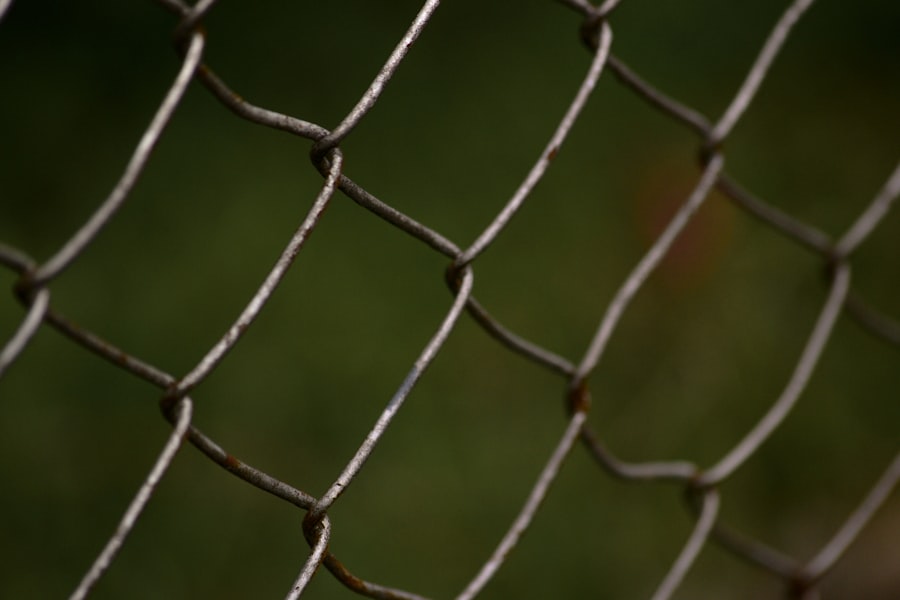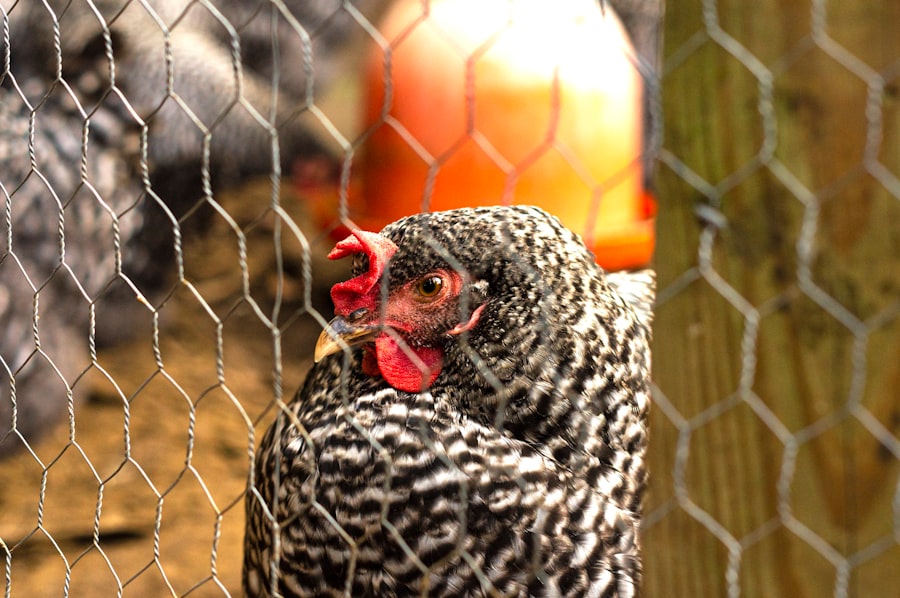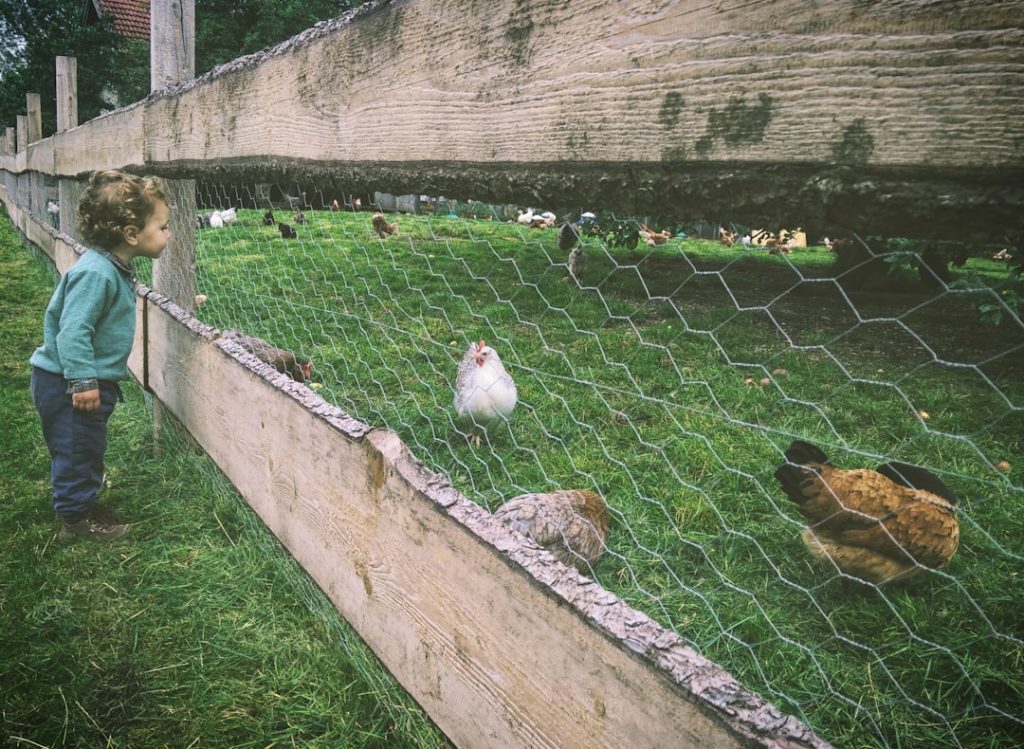Chickens are common farm animals that provide eggs, assist with pest control, and offer entertainment value. However, they can pose challenges for gardeners due to their natural scratching and pecking behaviors, which may damage plants and vegetables. Chickens can also contaminate garden areas with their droppings, creating hygiene concerns.
Effective methods for keeping chickens out of gardens are crucial for maintaining a productive and visually appealing outdoor space. The primary challenge in deterring chickens from gardens is finding solutions that are both effective and humane. It is essential to implement strategies that protect plants without harming the chickens.
Various approaches can be employed, including:
1. Physical barriers
2. Natural deterrents
3.
Designated chicken areas
4. Visual and auditory deterrents
5. Training and behavior modification techniques
By utilizing a combination of these methods, it is possible to prevent chickens from entering garden areas while still allowing them to roam and forage in other parts of the property.
This approach balances the needs of both the garden and the chickens, ensuring a harmonious coexistence between poultry and plants.
Table of Contents
- 1 Physical barriers to keep chickens out of the garden
- 2 Natural deterrents for keeping chickens away from the garden
- 3 Creating designated areas for chickens to roam
- 4 Using visual and auditory deterrents to keep chickens out of the garden
- 5 Training and behavior modification for chickens
- 6 Conclusion and final tips for keeping chickens out of the garden
- 7 FAQs
- 7.1 What are some effective ways to keep chickens out of the garden?
- 7.2 What types of fences are effective for keeping chickens out of the garden?
- 7.3 What natural deterrents can be used to keep chickens out of the garden?
- 7.4 How can providing alternative foraging areas help keep chickens out of the garden?
- 7.5 Are there any other methods for keeping chickens out of the garden?
Key Takeaways
- Chickens can cause damage to gardens by scratching, pecking, and eating plants
- Physical barriers such as fences, netting, and raised beds can effectively keep chickens out of the garden
- Natural deterrents like strong-smelling plants, predator decoys, and motion-activated sprinklers can discourage chickens from entering the garden
- Designating specific areas for chickens to roam and providing them with alternative sources of food and entertainment can reduce their interest in the garden
- Visual and auditory deterrents such as scarecrows, shiny objects, and noise-making devices can help keep chickens away from the garden
- Training and behavior modification techniques can be used to teach chickens to avoid the garden and respect boundaries
- Regular maintenance, observation, and adaptation of deterrent methods are key to successfully keeping chickens out of the garden
Physical barriers to keep chickens out of the garden
Fencing and Barriers
One of the most straightforward ways to keep chickens out of the garden is by installing physical barriers. This can include fencing off the garden area with chicken wire or other types of fencing that are tall enough to prevent the chickens from getting in. It’s important to make sure that the fencing is securely anchored to the ground to prevent the chickens from digging underneath it.
Roofs, Netting, and Raised Beds
Additionally, adding a roof or netting over the garden area can further deter the chickens from gaining access. Another option is to use raised beds or containers for planting, which can make it more difficult for chickens to reach the plants.
Motion-Activated Sprinklers and Chicken Tunnels
Another physical barrier that can be effective in keeping chickens out of the garden is using motion-activated sprinklers. These devices are designed to detect movement and then spray a burst of water, which can startle and deter the chickens from entering the garden. This method is not harmful to the chickens, but it can be an effective way to discourage them from getting too close to the plants. Additionally, using chicken tunnels or pathways can help direct the chickens away from the garden and towards designated areas for them to roam and forage.
Natural deterrents for keeping chickens away from the garden

In addition to physical barriers, there are also natural deterrents that can be used to keep chickens out of the garden. One option is to plant certain types of vegetation that chickens find unappealing. For example, planting prickly or thorny bushes around the perimeter of the garden can discourage chickens from trying to enter.
Additionally, certain herbs and flowers, such as lavender, mint, and marigolds, have strong scents that can repel chickens. These plants can be strategically placed around the garden to create a natural barrier that deters the chickens from getting too close. Another natural deterrent for keeping chickens out of the garden is using predator decoys.
Placing decoys of natural predators, such as owls or hawks, in and around the garden can create a sense of danger for the chickens, causing them to avoid the area. Additionally, using reflective surfaces, such as mirrors or shiny objects, can create a visual deterrent for the chickens. The reflection and movement of these objects can startle and confuse the chickens, making them less likely to enter the garden.
Creating designated areas for chickens to roam
One effective way to keep chickens out of the garden is by providing them with designated areas where they are free to roam and forage. By creating a separate space for the chickens, they are less likely to be tempted to enter the garden in search of food and entertainment. This can be achieved by setting up a chicken run or enclosure that is large enough for the chickens to move around in comfortably.
The run should be securely fenced off and include features such as perches, dust baths, and shade structures to keep the chickens happy and occupied. Another option is to use portable fencing or electric netting to create temporary grazing areas for the chickens. By rotating these grazing areas around different parts of the property, it allows the chickens to have access to fresh grass and insects while also preventing them from becoming too familiar with any one area, including the garden.
Providing plenty of enrichment activities, such as hanging treats or toys for the chickens to peck at, can also help keep them entertained and less inclined to venture into the garden.
Using visual and auditory deterrents to keep chickens out of the garden
Visual and auditory deterrents can be effective tools for keeping chickens out of the garden. One option is to use scarecrows or other visual deterrents that move or make noise when triggered by wind or motion. These devices can startle and deter the chickens from entering the garden without causing any harm to them.
Additionally, using bright colors or patterns in and around the garden can create a visual barrier that makes it less appealing for the chickens to approach. Another option is to use auditory deterrents, such as ultrasonic devices or sound emitters that produce high-frequency noises that are unpleasant for chickens. These devices are designed to be inaudible to humans but can be effective in deterring chickens from entering certain areas.
Another auditory deterrent is using recorded sounds of natural predators, such as barking dogs or crowing roosters, which can create a sense of danger for the chickens and discourage them from approaching.
Training and behavior modification for chickens

Positive Reinforcement Training
One approach is to use positive reinforcement training to teach the chickens to associate certain cues or commands with rewards. For example, by using treats or mealworms as rewards, chickens can be trained to respond to a specific sound or signal that indicates they should stay away from the garden.
Aversive Conditioning Techniques
Another option is to use aversive conditioning techniques, such as using a water spray bottle or making a loud noise when the chickens approach the garden. These methods are designed to create a negative association with entering the garden, which can deter the chickens from repeating this behavior in the future.
Important Considerations
It’s important to use aversive conditioning techniques carefully and sparingly to avoid causing stress or fear in the chickens. Consistency and patience are key to successful training, and it’s essential to find a balance between effective deterrents and the welfare of the chickens.
Conclusion and final tips for keeping chickens out of the garden
In conclusion, keeping chickens out of the garden requires a combination of strategies that are effective without causing harm to the chickens. Physical barriers, natural deterrents, designated areas for roaming, visual and auditory deterrents, and training and behavior modification techniques can all play a role in keeping chickens away from plants and vegetables. By implementing these strategies thoughtfully and consistently, it is possible to maintain a beautiful and productive garden while still allowing chickens to roam and forage in other areas of the property.
In addition to these strategies, it’s important to regularly monitor and maintain any deterrents that are put in place. This may include repairing any damaged fencing or replacing worn-out visual or auditory deterrents. It’s also important to observe the behavior of the chickens and make adjustments as needed based on their responses to different deterrent methods.
By staying proactive and adaptable, it is possible to find effective solutions for keeping chickens out of the garden while promoting a harmonious coexistence between poultry and plants.
If you’re looking for ideas to keep chickens out of your garden, you might want to check out this article on poultrywizard.com. They offer creative solutions for keeping chickens away from your plants and vegetables, such as using a chicken coop trampoline. This can help protect your garden while still allowing your chickens to roam freely.
FAQs
What are some effective ways to keep chickens out of the garden?
Some effective ways to keep chickens out of the garden include using physical barriers such as fences or chicken wire, using natural deterrents like plants with strong scents or prickly textures, and providing alternative areas for the chickens to forage.
What types of fences are effective for keeping chickens out of the garden?
Fences with a minimum height of 4 feet and buried at least 6 inches into the ground are effective for keeping chickens out of the garden. Additionally, using chicken wire or hardware cloth with small openings can prevent chickens from squeezing through.
What natural deterrents can be used to keep chickens out of the garden?
Plants with strong scents such as lavender, mint, or rosemary can deter chickens from entering the garden. Additionally, plants with prickly textures like holly bushes or thorny shrubs can discourage chickens from foraging in the garden.
How can providing alternative foraging areas help keep chickens out of the garden?
Providing alternative foraging areas such as a designated chicken run or a separate area with vegetation and insects can redirect the chickens’ natural behavior away from the garden. This can help minimize their interest in entering the garden to forage.
Are there any other methods for keeping chickens out of the garden?
Other methods for keeping chickens out of the garden include using motion-activated sprinklers, creating noise deterrents, and using visual deterrents such as scarecrows or reflective objects. It’s important to regularly monitor and adjust these methods to ensure their effectiveness.
Meet Walter, the feathered-friend fanatic of Florida! Nestled in the sunshine state, Walter struts through life with his feathered companions, clucking his way to happiness. With a coop that’s fancier than a five-star hotel, he’s the Don Juan of the chicken world. When he’s not teaching his hens to do the cha-cha, you’ll find him in a heated debate with his prized rooster, Sir Clucks-a-Lot. Walter’s poultry passion is no yolk; he’s the sunny-side-up guy you never knew you needed in your flock of friends!







